UNHCR seeks $13 million to step up response to South-East Asia boat crisis
This is a summary of what was said by UNHCR spokesperson Melissa Fleming – to whom quoted text may be attributed – at today's press briefing at the Palais des Nations in Geneva.
UNHCR is seeking US$13 million to help with the needs of new boat arrivals in South-East Asia, where thousands of refugees and migrants have been crossing the Bay of Bengal and the Andaman Sea.
The appeal was launched yesterday, and is aimed at beefing up our work to do with protection for the nearly 4,800 people from Myanmar and Bangladesh who have been disembarked from smugglers' boats in the last month. In the latest incident, earlier this week, over 700 people were landed in Myanmar's Rakhine state. They included some 120 women and children who said they had been at sea for at least three months.
With the monsoon season imminent, it's estimated that thousands of people may still be at sea.
UNHCR's appeal follows from last Friday's regional meeting of affected States held in Bangkok. It also reflects elements of a 10-point plan of action proposed by UNHCR, the International Organization for Migration and the UN Office on Drugs and Crime.
The funds will allow UNHCR to step up its response in three main areas: Firstly by helping meet the international protection needs of new boat arrivals, secondly by enhancing information available to people considering the journey, and thirdly by targeting some of the root causes of these movements in source countries.
To date, UNHCR's teams have registered just over 1,000 Rohingya new arrivals in Indonesia. In southern Thailand we have distributed relief supplies and are counselling dozens of new arrivals, while in Malaysia we are scaling up to meet the needs of arrivals once consistent access is provided.
Additional resources are needed to set up mobile multi-functional teams to quickly identify and help people with specific protection needs. Refugees who cannot return home will need assurance that they can stay in host countries temporarily with access to legal work until conditions are conducive for voluntary return or until other solutions are found. Where possible, UNHCR will support livelihood programs within national structures to serve the needs of both refugees and host communities.
The appeal envisages trainings for the region's search-and-rescue officials on international legal principles and protection, and exploration of predictable disembarkation options. UNHCR will also expand its monitoring and reporting on maritime movements to include information campaigns providing factual information to potential travelers about the risks and mistreatment at the hands of smugglers and traffickers.
To reduce incentives for people to undertake these dangerous sea journeys, UNHCR will seek legal alternatives such as programs to transition from refugee to migrant status in host countries in need of temporary migrants.
A key part of the appeal focuses on mobilizing support for humanitarian, human rights and development needs in source countries to address the root causes of movement. UNHCR is ready to work with the governments to address issues of citizenship and documentation of people in Bangladesh and in Myanmar's Rakhine state.
To help resolve the three-year-long internal displacement in Rakhine state, UNHCR is seeking to expand assistance to and monitoring of displaced families who wish to return home or establish new homes.
For more information on this topic, please contact:
- In Bangkok, Vivian Tan on mobile +66 818 270 280
- In Geneva, Babar Baloch on mobile +41 79 557 9106
-

Middle East and North Africa Global Refugee Forum Stocktaking and NGO/Civil Society Consultations Outcome Report
15 Sep 2021 The MENA Global Refugee Forum Stocktaking and NGO/Civil Society Consultations took place on 20 – 21 April 2021, bringing together over 150 participants from Egypt, Iraq, Jordan, Kuwait, Tunisia, Morocco, Lebanon, Libya, Mauritania; participants from regional organizations and multi-stakeholder partners. It included discussions on the practical ways in which actors are advancing the GCR and implementing GRF pledges, considering COVID-19, and considering the evolving challenges and opportunities on the ground. -
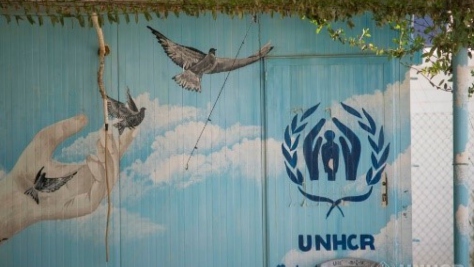
What is Sexual Exploitation, Abuse and Harassment?
All UN personnel should report sexual exploitation and abuse. Regarding sexual harassment, UNHCR's position is clear: Sexual harassment in the workplace is unacceptable and must be eradicated from operations. -
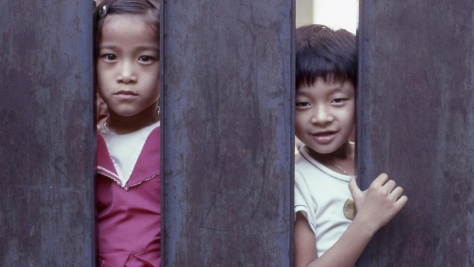
Forced To Flee: UNHCR podcast tells story of displacement over 70 years
14 Sep 2021 To mark UNHCR's 70th anniversary, a new seven-part series revisits major upheavals that shaped the period through the eyes of displaced people and others caught up in events. -
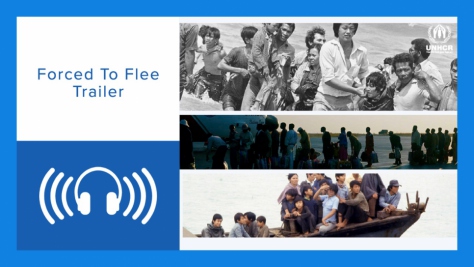
Forced to Flee #PODCAST | TRAILER
14 Sep 2021 -
Statement at the High-level Ministerial Meeting on the Humanitarian Situation in Afghanistan
13 Sep 2021 -
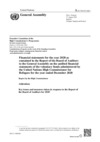
Key issues and measures taken in response to the Report of the Board of Auditors for 2020 (A/AC.96/1212/Add.1)
13 Sep 2021 -

A Victim-Centred Approach
-

Equip and Empower
This strategy serves as a guide for the tangible actions we take in the prevention of and response to sexual exploitation, abuse, and sexual harassment. This includes implementing a policy on a victim centre approach, having focal points in operations dedicated to the prevention of and response to sexual exploitation and abuse and having a victim care officer supporting survivors of sexual harassment. -
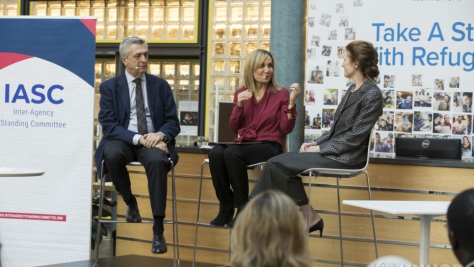
Accountability
Sexual misconduct is rooted in a culture of discrimination and privilege based on gender inequalities and power imbalances. Eradicating sexual misconduct requires a change in individual attitudes and organizational culture.
